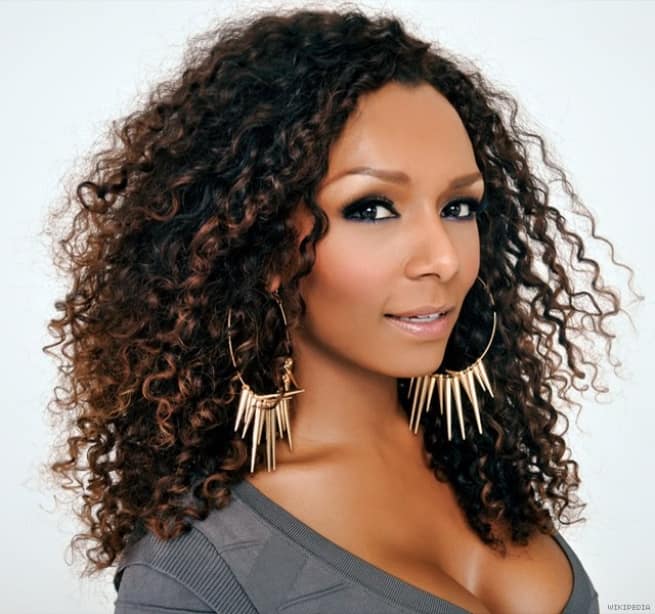Queerness is Magic!
"Sometimes people try to destroy you, precisely because they recognize your power - not because they don't see it, but because they see it and they don't want it to exist."

Janet Mock
Advocate
*Although not everyone will use the term this way, I decided to use the word queer/queerness rather than LGBTQ+. My reasoning is that queerness embodies a much larger spectrum of identity and reinforces a movement of liberation. Language is powerful and not everyone will use words, in the same way, depending on age, identity, or other factors.
Over the years I’ve heard different variations of what it means to “come out of the closet.” The very statement is not only harmful but deep-rooted in stigma towards queer folx. Most people who make these statements seem to believe that being “out” means people will be happier, safer, or more “authentic” as individuals. Unfortunately, many of the folx who make these statements don’t realize the complexities and dangerous circumstances many queer folx live under. Currently, it is estimated that upwards of 40% of homeless youth identify as LGBTQ+ (Chapin Hall, University of Chicago). LGBTQ+ youth homelessness is often attributed to youth leaving dangerous home situations or being kicked out by family.
You see, we live in a world where labels centered around sexual identity are put under a microscope. This is nothing new and it’s what many queer movements have been fighting. The right to exists and thrive regardless of whom we choose to love or frankly, who we are intimate with. The reality, however, is more daunting and quite honestly reminds us that we have a long way to go. Sure, we have our pride parades and more representation on TV. Yet, we still see record-high suicide rates by queer youth, discrimination embedded into state laws all over the country, and anti-LGBTQ+ groups rampaging around our backyard. All this to say that “coming out” or “coming out of the closet” is not always safe or positive. There are increasingly high numbers of queer folx who are forced or chose to remain “hidden” because they face real life-threatening consequences if they “come out.” There are countless countries, including our own, where people get attacked or killed simply for “looking queer,” whatever that means.
Our society centers itself around fear and anger. If people don’t understand something or it goes against their views, then it automatically becomes a threat. We know how people respond to threats, regardless of whether they are physical or psychological. Queer people defy social structures and gender binaries that hold others prisoner psychologically. Sadly, this means that queer folx are seen as threats. Countless queer folx have suffered at the hands of bullshit patriarchal upholding individuals who rather attack than listen.
As lovely as depictions on media look of people coming out and being received with open arms (ex. Love Simon), this is not always the case. Below are common reasons why folx keep their queerness private:
- Fear of rejection from family, friends, and colleagues.
- Fear of physical, psychological, or emotional harm.
- Worry of discrimination or bullying
- Fear of being placed under a microscope (people analyzing, asking too many questions, or making ridiculous conclusions about the queer individual’s identity).
- Fear of being treated differently by loved ones.
- Being cut off financially or ending up homeless.
- Going to prison (in some countries).
- Losing romantic relationships with folx who are not able to or don’t desire to come out.
Keep in mind this is not an exhaustive list, there are many other larger and smaller personal reasons why queer folx don’t “come out.”
What Can You Do to be Supportive?
Remember whether you have a loved one who may be queer or work with queer folx, don’t make assumptions. We all have biases and views, regardless of how “open-minded” we say or believe we are. The best method is always to engage in active listening and provide a safe space. This can be as simple as letting folx know you are open to talk about sexuality, queerness, identity, etc. It can also helpful for you to have some resources handy whether that is hotlines, websites, videos, or podcasts that discuss queerness. Also, if you have not heard of a specific identity do not belittle it or criticize it, identity is unique and personal. Commit to ongoing learning about queerness and issues affecting different communities.
One great resource is an article shared here on PsychoSocial about the “Coming Out” cycle. You can read that by clicking here.
Final Thoughts
As helpful as we know being free to be ourselves is, remember that not everyone has that privilege and it is not our job to dictate or assume when someone is ready. As allies and support, our role is to listen and do our best to help queer folx on their journey. Pushing, forcing, or outing someone can have drastic psychological or physical repercussions on them. When someone is ready or in a space to do so, help them plan and talk about what sharing such a personal part of themselves can look like. Some folx will need help with communicating, expressing, or developing safety plans.
I want to make clear that I firmly believe living our authentic self is an invaluable experience and powerful. Many activists often call for queer folx to rise or even to speak up, however, as a therapist, I also understand that this is not always safe and survival is required. This does not mean that it is forever, or may be it does. In the end, it is not OUR decision, but individual folx who decide what is best for them.
Luis is a Licensed Marriage & Family Therapist who graduated from Long Beach State University with a Masters degree in Counseling Psychology (2015). He also has a Bachelors's degree in Child and Adolescent Development with an emphasis on Public Policy from San Francisco State University (2011). Luis has over 9 years of experience working with children and families both in education and mental health. Previously, Luis worked for a non-profit agency in San Francisco, CA providing mental health consultation in early head start programs and SFUSD pre-schools. Currently, Luis works at Kaiser in San Francisco providing mental health services.
His therapeutic interests include working with Trauma, the LGBTQ community, Children, Families, Couples, and POC. His personal interests include; Films, Reading, Writing, Art, Travelling, Disney, and Food. He is also a recipient of the California State Stipend award (2015). PsychoSocial is part of Luis' dedication to mental health and an example of his passion to educate others. Luis hopes that through PsychoSocial he will be able to help in the fight to end the stigma around mental illness.
#EndtheStigma
-
Luis Cornejo, LMFThttps://psychosocial.media/author/psychosocial/September 18, 2017
-
Luis Cornejo, LMFThttps://psychosocial.media/author/psychosocial/January 28, 2018




















